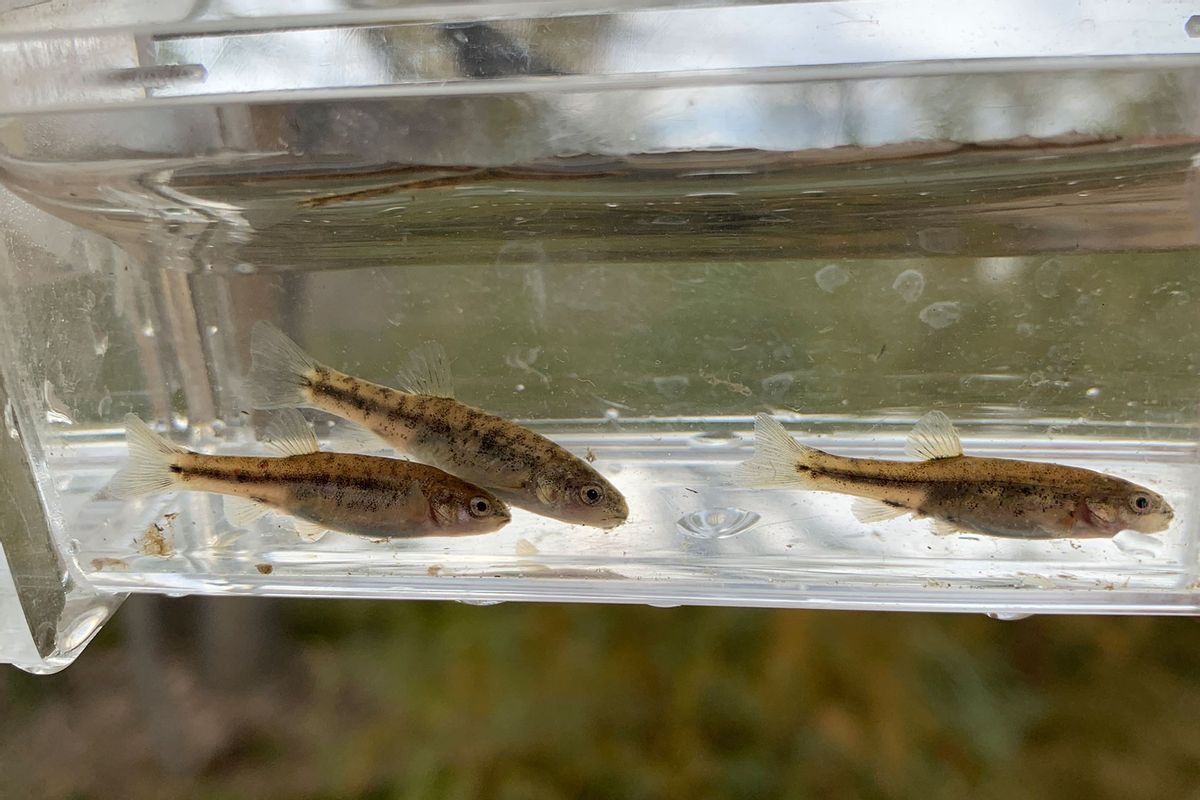The Oasis Valley speckled dace is a distinctive fish, with an elongated body covered in black freckles over a gold or silver-hued surface. Unfortunately for this rare species of dace, they only reside in a single spot on the planet: The springs which feed Nevada's Amargosa River. Now the Oasis Valley speckled dace is at risk of extinction by more than half a dozen gold mines in the same area, according to a new petition filed by the Center for Biological Diversity.
Calling for emergency protection for the Oasis Valley speckled dace under the Endangered Species Act, the Center for Biological Diversity argues that immediate aid is necessary because the fish faces "existential threat." The various gold mining projects draw groundwater down which could dry out both the springs and outflows with the Oasis Valley speckled dace reside. the most imminent threat to the fish, according to the petition, is the North Bullfrog Mine, currently under permitting by the U.S. Bureau of Land Management. Dewatering as a result from that mine could drain groundwater levels in the fish’s habitat by as much as 13 feet. Six other such mines are proposed in the immediate area.
Additionally, the rare fish is endangered by other human activities such as redirecting water for human needs, trampling and habitat damage from cattle and burros, pumping groundwater for solar energy development and climate change.
“The Amargosa River is in the crosshairs of the international gold-mining industry, and the Oasis Valley speckled dace could be its first casualty,” Patrick Donnelly, Great Basin director at the Center, said in a statement. “If we don’t take immediate action, we could lose this biologically important little fish and the precious, rare desert springs it needs for survival.”



Shares